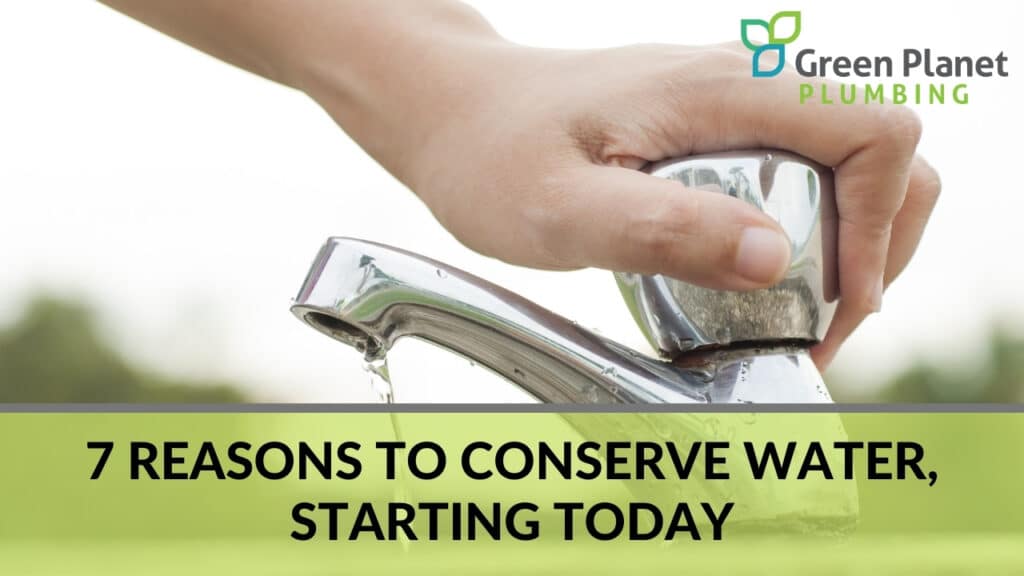Facts and statistics surrounding the world’s current water crisis.
The World is in a Water Crisis
The global water crisis has been happening for decades, and it has come to an alarming point. From Africa to Asia and even in the most developed cities in North America and Australia, water stress is worsening. According to the W.H.O, half of the population on the planet will be living in water-stressed regions by 2025.
With this in mind, companies like Green Planet Plumbing, based in Newcastle, NSW, advocate water conservation and encourage consumers to make some small changes to their habits to help save water.
After all, there is no better place to start than with ourselves, right at home. Just because there is still water coming out of the tap does not mean it is still in abundant supply. The truth is we are running out of clean water. Yes, the surface of the Earth is covered with 70% water. But only 2.5-3% of that is freshwater fit for human consumption. Let’s take a broader look at the global water crisis and why we must take this matter seriously.
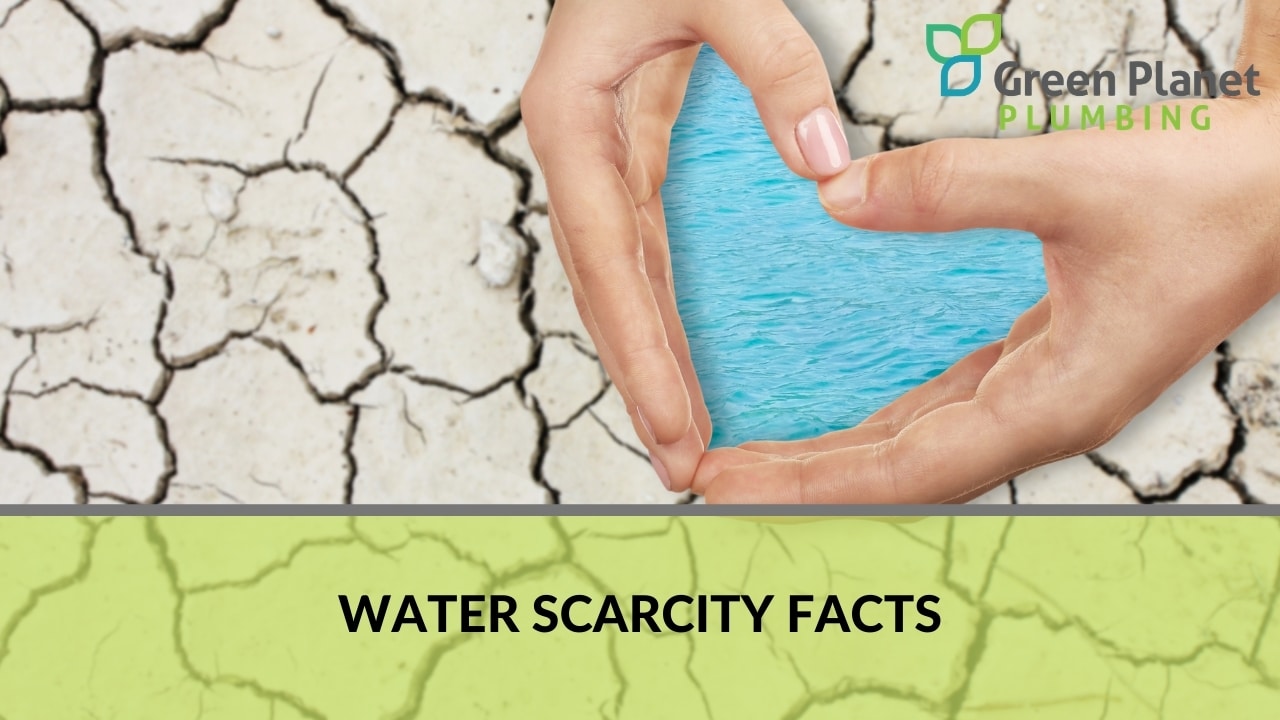
Water Scarcity Facts
Water scarcity contributes to water stress, which is when the amount of water is insufficient to satisfy the population’s demand. Water scarcity occurs mainly for two reasons — either due to ecological or economic inefficiencies. In some cases, both factors are present. These two major water scarcity factors create problems in all corners of the world.
Ecology and Water
The region’s ecological condition influences physical scarcity – drought, or the lack of rainfall, is the most significant factor in physical water shortage and whilst Australia has experienced above-average rainfall recently, particularly in QLD and NSW, it is not enough to mitigate the effects of long-term rainfall shortage.
Economy and Water
Meanwhile, the economic aspect of water scarcity includes infrastructures like sanitation facilities and water supply pipes in the city because some areas do not have reliable infrastructure and thus do not receive enough freshwater.
Water Scarcity Statistics
Right now, some places have already been under severe water shortage conditions, while others are just starting. Here is the world’s water crisis in numbers:
- By 2050, the world is projected to be under “extreme drought, leading to disease, dehydration and mass starvation.
- By 2050, water demand in the world is projected to increase by 55%.
- In Africa, women and girls walk an average of 6 kilometres daily to fetch water.
- Only 3% of the world’s water is fresh.
- only 1% of the freshwater is accessible.
- Only 0.007% of the world’s water is safe and available.
- 2 billion people are experiencing some form of water crisis.
- 27% of the world’s population have no access to Basic sanitation.
- 144 million people drink contaminated water.
- 800 children under 5 die every day from contaminated drinking water.
- 880 million people in the world only manage with less than 5 litres of water per day.
- In comparison, Australians use 200-350 litres, depending on the region.
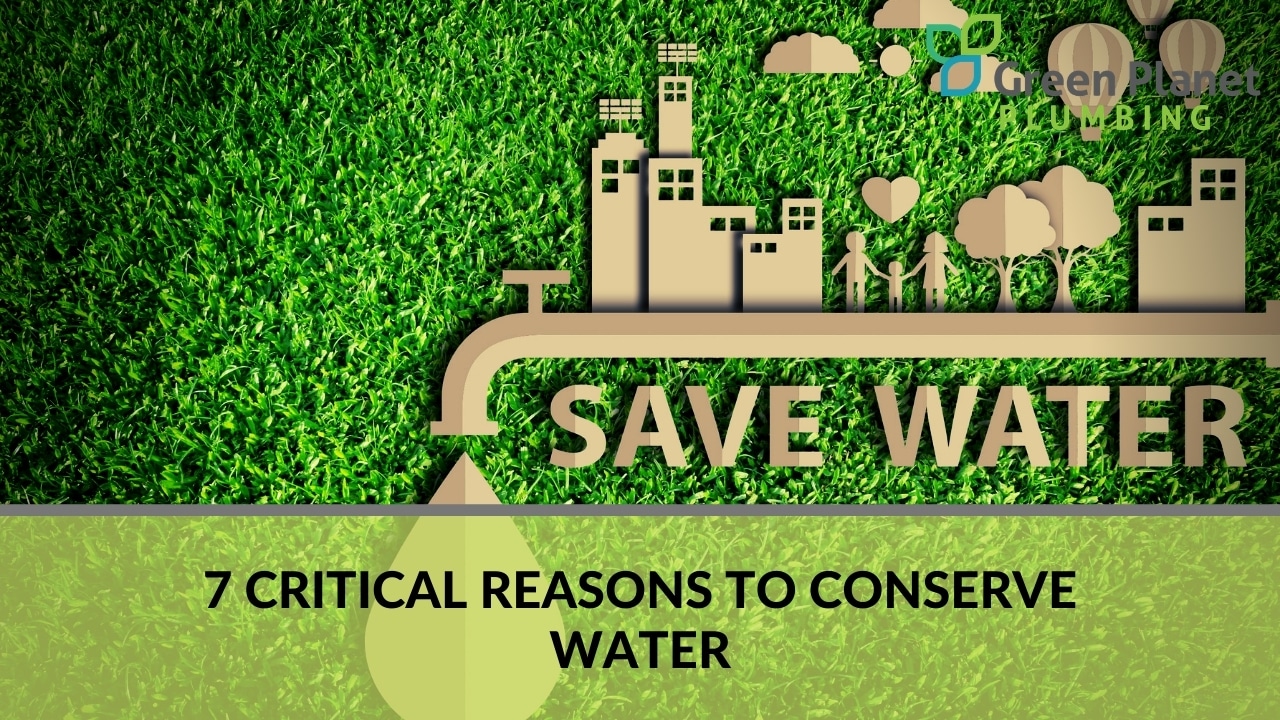
7 Critical Reasons to Conserve Water
Water scarcity may not be something that some Australians worry about right now, but, given the current water crisis and where it is leading, we need to rethink our habits. Here are 7 reasons to conserve water starting today:
1. Access to Clean and Safe Water
Perhaps the first thing that comes to mind about water shortage is the lack of access to water for consumption. This situation is true and happening in places right now, but it could also happen here in Australia – and soon.
NSW is already running out of water, with a lack of rain and the Macquarie River not receiving enough inflow in the river system. The same is true with the rest of the country’s major river systems, such as the Lachlan River, Gwydir River, and Nepean River.
The Warragamba Dam, which supplies water to 4.5 million people, is estimated to dry up by 2022. The government is already acting on this issue, but nature can be a formidable enemy. The best thing that the citizens can do to help is to wise up with water usage.
2. Prevention of Food Shortage and Starvation
Water plays a significant role in producing the food that people eat. From growing to processing different foods, millions of litres of water are used.
Every food item consumed has a water footprint: It takes 2550 litres of water to produce a 150g beef steak, for example, or a simple plate of salad needs about 80 litres of water and a mere cup of coffee or a glass of wine takes 128 litres of water to produce.
Without water, our food supply will simply not thrive, resulting in inadequate supply for food demand, leading to eventual starvation.
3. Prevention of Diseases (Say No to Another Pandemic)
Water is necessary for sanitation to keep the population clean and healthy (more on that later). Everyone knows that nothing beats soap and water to rid the body of disease-causing bacteria and viruses.
Without access to clean water, some people are compelled to just use whatever water is available. The water will most likely be untreated and therefore carries harmful pathogens.
Whether the water is used for drinking or cleaning, the pathogens will get into the body and cause diseases and disease will most likely get passed on from person to person, because of the poor water situation. The worst-case scenario would be the disease spreading across borders, leading to another pandemic.
4. Retain Education and Employment
Who would have thought water is highly instrumental in preventing poverty? When you think about it, unfortunately, poverty-stricken nations are also those going through a bad case of water scarcity.
People from these regions don’t only suffer from starvation, dehydration, and diseases due to water scarcity – the lack of water supply makes it difficult for them to carry on with their employment and education.
Water is an essential resource for them to attend to their academic or professional pursuit. Without it, they will be sick or hygienically unfit to come to work or class. As a result, they will not receive the education or income they need, and they will not thrive.
5. Prevent Sanitation Issues
Water is essential not only for drinking and cooking, it is also indispensable in maintaining personal and environmental hygienic conditions. Cleaning, washing, and bathing with dirty or contaminated water will not do the job of proper sanitising.
Additionally, lack of opportunity for proper sanitation may lead to mental health issues such as stress, anxiety, and depression due to the high mental burden to procure clean water.
6. Prevention of Loss of Habitat and Biodiversity
Everyone knows that water is crucial for the survival of life forms. When animals and plants don’t receive enough water over a long period, they die. Animals may leave their habitat and move to another location. In the most severe water shortage, plants and animals may no longer reproduce and become extinct. Water scarcity creates a poor environmental condition that may lead to loss of biodiversity.
7. Keep the Community Thriving
Of course, water scarcity impacts communities, too. Firstly, the water crisis forces people to leave their land and search for a place with better access to water, creating a loss of jobs and livelihoods.
Secondly, without a sufficient supply of clean water, people are more likely to spend more on healthcare due to increased incidence of illness.
Thirdly, many income-generating activities involving clean water will be severely affected. All in all, the community will simply stop thriving when water scarcity strikes.
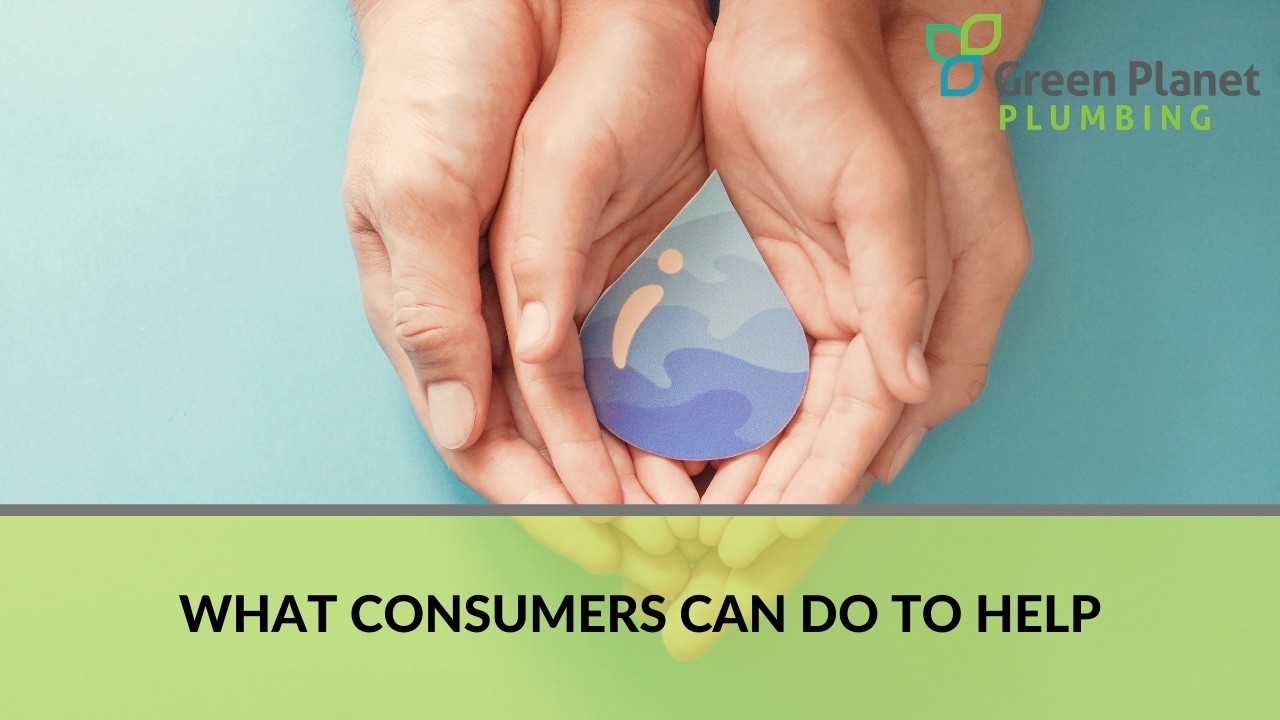
What Consumers Can Do to Help
At the rate things are going now, the world has a long way to go to solve the water crisis but, if people start practising water conservation measures today, they can definitely help. There are some simple ways to manage water stress in communities, and it begins at home.
- Save Water
One of the simple ways to save water at home is to reduce consumption. The shower, toilet, and laundry are the areas where most water is consumed at home. Perhaps people can look carefully into their water habits in these areas and identify how they can become more water efficient.
Try to limit the use of water whenever possible. This practice is something that Green Planet Plumbing has been trying to promote. Although 2021 is almost halfway through, it is still not too late to practice this water-saving New Year’s Resolution ideas.
- Recycle Water
Green Planet Plumbing gives many ideas on how to recycle water to maximise its use and minimise wastage. One example is to collect water used to wash fruits and vegetables and using it to water the plants.
Many homeowners have a water tank installed to collect rainwater. This rainwater system is an excellent strategy for recycling water. Rainwater is great for washing clothes and toilet flashing and may also be used for showering.
- Go Green
Choosing eco-friendly choices at home will significantly impact the environment in a helpful, positive way. For example, for low-flush toilets, low-flow showerheads, and dual-plumbing systems are just some of the many ways. These options will help conserve and reuse water while reducing your water bill at the same time.
- Support Conservation and Clean Water Initiatives
Due to increasing awareness of the world’s water crisis, many organisations have emerged to help manage the problem. Consider donating to organisations that are aiming to bring safe and clean water to areas that need it.
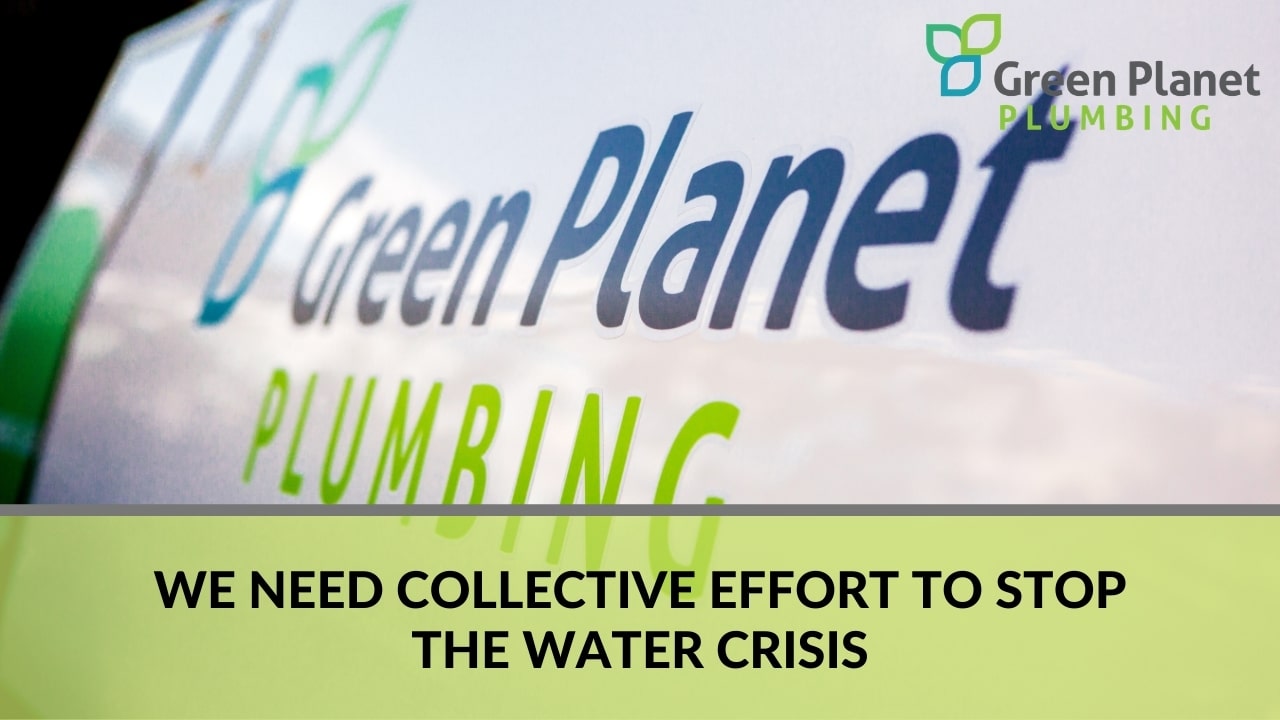
We Need Collective Effort to Stop the Water Crisis
It is possible to manage the effects of water stress, but it cannot happen overnight. People need a collective effort and dedication to water conservation initiatives.
Australia may have adequate freshwater to meet the needs of its population for now, but remember that the country has been experiencing drought in many areas for years. Rainfall is not reliable, and climate change is making things even more difficult. The continuous growth of cities resulting in increased water demand also poses a big challenge.
Help the country secure its clean water supply by adapting to the situation and making some changes. We at Green Planet Plumbing can help you go green by providing water-conserving choices for your home or commercial property.
Get in touch by visiting us online at greenplanetplumbing.com.au, calling us on 02 4911 9402 or sending us an email to hello@greenplanetplumbing.com to get started.

